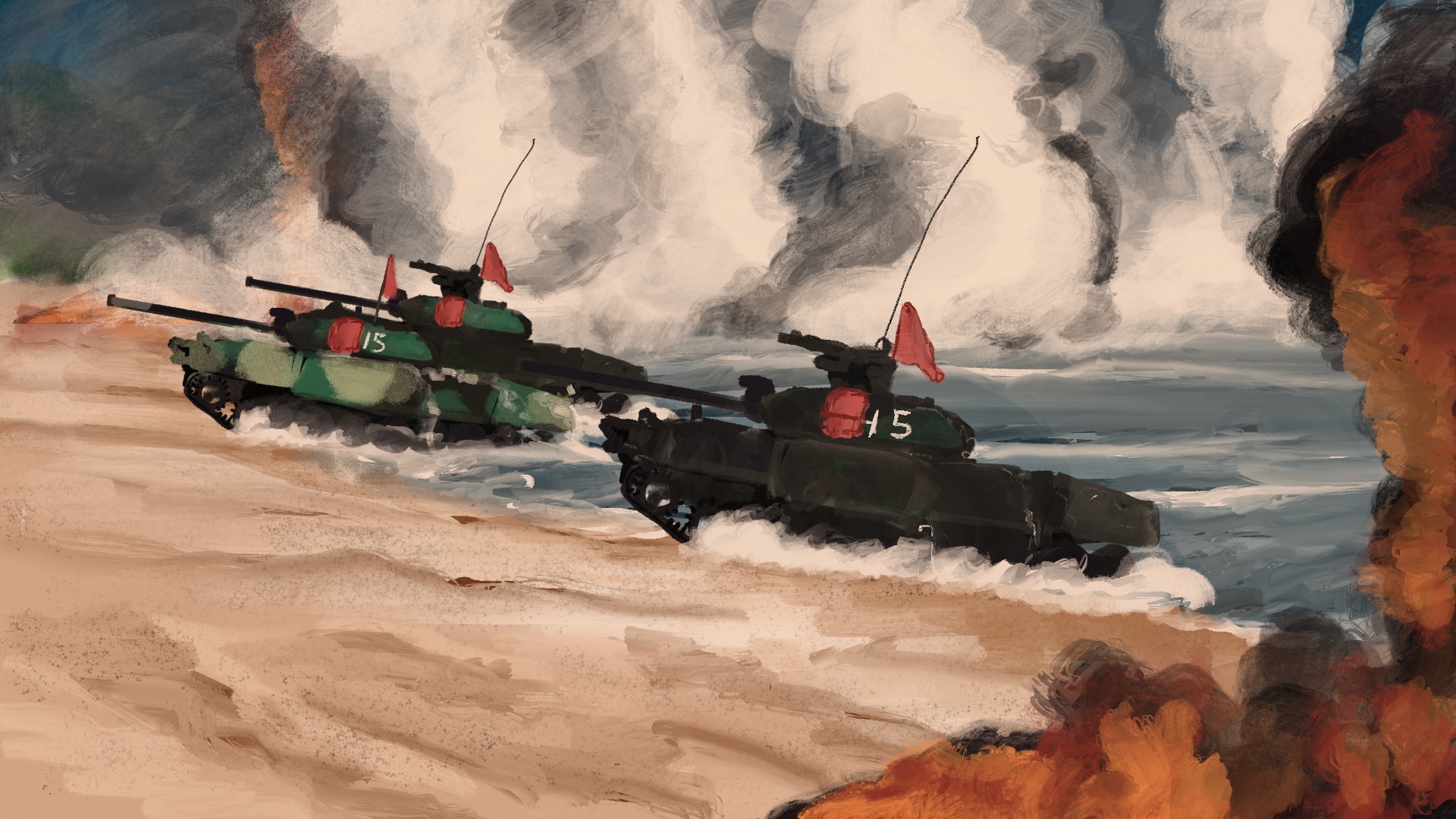No, China will not invade Taiwan
In mainland China, fear of Taiwanese independence feeds the fever of traumatized nationalism, unites domestic rivals around a shared national dream, and serves as a never-ending threat that justifies enormous military expenditures — but not for war.

Will China invade Taiwan? The question has recently leapt to the forefront of international debate, with observers pondering the imagined consequences: Would the U.S. come to Taiwan’s defense? Would Taiwan retaliate by bombing the mainland? Would the conflict draw regional players into the devastation? How quickly, and how far, would the fighting spread? Just how many people would die?
Testifying before the Senate Armed Services Committee in early March, Admiral Philip Davidson warned that China could invade Taiwan in the next six years. MoneyWeek followed the admiral’s provocation with an article in April asking, “Will China invade Taiwan?” By May, worries over China’s intentions led the Economist to dub Taiwan “the most dangerous place on Earth.”
Allow me to step in and put the matter to rest: No, China will not invade Taiwan.
Concerns over a possible invasion of Taiwan have been flamed by Xí Jìnpíng’s 习近平 increasingly strident nationalism, yet we should remember that every leader of modern China, beginning with Chairman Máo Zédōng 毛泽东 in 1949, has pledged to “reunify” Taiwan with the mainland. Following the Communists’ triumph over Chiang Kai-shek’s Nationalists in 1949, many assumed Mao’s forces would storm Taiwan, where Chiang had fled. In “Probable Developments in Taiwan,” a formerly classified 1950 CIA report I found at the Harry S. Truman Presidential Library, CIA analysts fretted that an invasion was coming. Communist propaganda at the time said as much. But in the appendices to the CIA report, a range of military experts (perhaps happy to contradict the ever-encroaching spies) argued that Mao’s threats were empty, for the Communists lacked air cover, amphibious assault vehicles, and credible naval power. An invasion of Taiwan, under these circumstances, would have been a military fiasco. Back in 1949 and 1950, when “reunification” with Taiwan was most plausible, the mainland’s chest-thumping was mere bluster, intended to stir the passions of domestic audiences.
This same dynamic applies today. For example, Xi Jinping’s New Year’s speech in 2019 reprised the usual litany of Chinese Communist Party (CCP) claims and demands about Taiwan. Xi assured his audience in the Great Hall of the People, with a catalogue of cliches, that “reunification” is imminent and “can never be altered by anyone or any force.” Part of the “irresistible trend” of China’s “national rejuvenation,” this about-to-be-fulfilled reunification “can never be changed by anyone” because “the tide of time” foretells China’s rise. Within the tightly scripted world of CCP theater, the speech made for tremendous press.
But far from signaling war, these messages were meant for vested interests in China. Interestingly, no one would know this better than those in Washington, D.C. In the United States, no U.S. president can corral the massive expenditures of the military-industrial complex without losing the support of the armed services, intelligence agencies, and their allied suppliers. As Garry Wills argues in Bomb Power, the democratic process has been warped by these institutional forces. Likewise, the Party’s leaders in Beijing have fallen hostage to what Wang Lixiong estimates are the 24 “anti-separatism institutions” that “deliberately exacerbate existing conflicts” because “the more that separatism is a problem, the more power and resources these institutions and bureaucrats are awarded by the empire.” Much like the U.S. political process, so the CCP has been colonized by its own military-industrial complex: China’s military, policing, and spying apparatuses have evolved into behemoths that warp policy in ways beneficial to themselves but destructive to the nation as a whole. Thus, in China as in the U.S., the trajectory of escalatory public rhetoric needs to be balanced against the entrenched interests of the institutional powers that drive what reporters Dana Priest and William M. Arkin call the National Security State.
It is important to remember, however, that the National Security State seeks resources, prestige, and influence, but not necessarily war. In his excellent analysis of these same questions regarding the 1995-96 Taiwan Strait Crisis, when the Party was again making threats, academic You Ji argued that such gestures had little to do with actual invasion plans regarding Taiwan and more to do with rallying competing domestic factions. “The Taiwan issue can be used,” You noted, “as a centripetal force that binds the leadership together and mobilizes popular support,” albeit “under the one precondition that there is no real war.” From this perspective, war talk with regards to Taiwan serves as an infinitely flexible justification for the enrichment of the military-industrial complex/National Security State. For those who support a stronger, more modern PLA, and who hope to corral the wishes of liberal reformers, Taiwan is the gift that keeps giving. Like the fear of “separatism” in Tibet, fear of Taiwanese independence feeds the fever of traumatized nationalism, unites domestic rivals around a shared national dream, and serves as a never-ending threat that justifies enormous military expenditures — but not for war.
On the domestic scene, Xi Jinping has amassed virtually unlimited power for himself and his allies, meaning risking war would be an unnecessary gamble. Xi can already boast of cracking down on Hong Kong, subduing Xinjiang, and reclaiming most of the contested South China Sea. But if invading Taiwan went badly, none of that would matter: his legacy in P.R.C. history would forever be tarnished.
And this brings us to the most important reason why China will not invade Taiwan: the costs of doing so, even given China’s enormous military build-up, would be too high. It would be political suicide.
If China invades, the American people will rally around the besieged democracy. A recent Center for Strategic and International Studies opinion survey found strong public support for defending Taiwan, even if that meant going to war. At Congress.gov, readers can look up “Taiwan” to find 94 different bills, measures, or resolutions supporting Taiwan. Defending Taiwan is one of the few issues with unquestioned bipartisan support.
Americans would call for a boycott of all China-made goods. The hundreds of thousands of Chinese students currently studying at our universities would face escalating harassment. Beijing can kiss future Olympics goodbye. Transnational banking and investments would freeze. International supply chains would screech to a halt. And America’s political divisions would evaporate overnight, turning a beleaguered and cranky land into a united people backing Taiwan and mad-as-hell about Chinese aggression.
This same rally-around-an-enemy process would likely unfold in Australia, Japan, India, and other regional neighbors that have recently felt bullied by Beijing. You can just imagine the headlines around the world screaming how the “China Dream” had morphed into the “China Nightmare.” Any hope China might harbor for earning recognition as a credible broker of legitimate authority in Asia, let alone becoming a global leader, would evaporate overnight.
My argument hinges on an assumption about how the PRC views itself, and how it wishes to be seen by others. At the root of this national identity lies a sense of China as a post-colonial entity that successfully threw off the shackles of the “century of humiliation” to begin its rise back to greatness. For Mao and the revolutionary generation, China was not only anti-colonial but pro-independence. These principles were expressed in the 1972 Shanghai Communique: “All nations, big or small,” the Communiqué pledged, “should be equal. Big nations should not bully the small and strong nations should not bully the weak.” Chinese nationalism was rooted to a sense of anti-colonial activism; China was not just an emerging power but an advocate of justice.
Invading Taiwan would mark the end of that sense of the nation as a force for good. China would henceforth be just another imperial power crushing a smaller neighbor. No one in the Indo-Pacific would feel safe. The feel-good “win-win” propaganda surrounding the One Belt, One Road initiative, a project Eyck Freyman dismisses as a trillion-dollar branding effort, would evaporate in a cloud of bombs.
Invading Taiwan would show that China has become — like Britain, France, America, Japan, and Russia before it — just another power-hungry and ethics-free monster, grabbing what it wants by crushing the rights and lives of others. This would mark the evolution of China from being a post-colonial nation into an imperial one. Losing its sense of self is much too steep a price just to appease the ultranationalists within its ranks.






